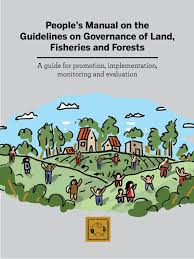Location
The International Planning Committee for Food Sovereignty (IPC) is an autonomous and self-organised global platform of small-scale food producers and rural workers organizations and grass root/community based social movements to advance the Food Sovereignty agenda at the global and regional level.
More than 6000 organizations and 300 millions of small-scale food producers self organize themselves through the IPC, sharing the Food Sovereignty principles as outlined in the Nyeleni 2007 Declaration* (paragraph) + 6 pillars of the synthesis report.
IPC facilitates dialogue and debate among actors from civil society, governments and others actors in the field of Food Security and Nutrition, creating a space of discussion autonomous from political parties, institutions, governments and private sector.
The legitimacy of IPC is based on the ability to voice the concerns and struggles that a wide variety of civil society organizations and social movements face in their daily practice of advocacy at local, sub-national, regional and global levels.
All the positions or joint policy initiatives must be signed by the individual organizations, and each participant can only speak on behalf of its own organization, and not as a representative of a sector, geographic area or representing the network as a whole.
The organizations participating at the international level to the IPC are: La Via Campesina (LVC), World Forum of Fishers People (WFFP), World Forum of Fish Harvesters & Fish Workers (WFF), World Alliance Mobile Indigenous People (WAMIP), Mouvement International de la Jeunesse Agricole et Rurale Catholique (MIJARC), {The International Union of Food, Agricultural, Hotel, Restaurant, Catering, Tobacco and Allied Workers’ Associations – (IUF)}, URGENCI, International Indian Treaty Council (IITC), Habitat International Coalition (HIC), World March of Womens and International Federation of Rural Adult Catholic Movements (FIMARC).
The IPC Regional Processes include organizations participating at the regional dimension as Roppa, Propac, Movimento Agro Ecologico Latino Americano, Enlaces Continentales Mujeres Indigena, Coordinadora Andina de Organizaciones Indígenas, Coordinadora de Organizaciones de productores Familiares del MERCOSUR (COPROFAM), Austrialian Food Sovereignty Alliance, US Food Sovereignty Alliance.
NGOs participate as active support for the above mentioned social movements. The main NGOs supporting the IPC are: FIAN, Friends of the Earth International, Centro Internazionale Crocevia, International Collective in Support of Fishworkers.
Members:
Resources
Displaying 1 - 3 of 3People’s Manual on the Guidelines on Governance of Land, Fisheries and Forests: A guide for promotion, implementation, monitoring and evaluation
The manual explains how to use the Voluntary Guidelines on Responsible Governance of Tenure in everyday life to protect the rights of peasants and other communities.
VGGT: People’s Manual on the Guidelines on Governance of Land, Fisheries and Forests
This publication is intended to support the use of the Voluntary Guidelines on the Responsible Governance of Tenure of Land, Fisheries and Forests in the Context of National Food Security. It is not intended to contradict the language of the Guidelines as endorsed by the Committee on World Food Security on 11 May 2012 nor the role of states in their implementation
VGGT: Fold-out User Guide to the analysis of governance, situations of human rights violations and the role of stakeholders in relation to land tenure, fisheries and forests, based on the Guidelines
This guide provides tools to understand the Voluntary Guidelines on the responsible Governance of Tenure, which sometimes uses technical language that is not easy to understand for those who are not used to reading this kind of text.




